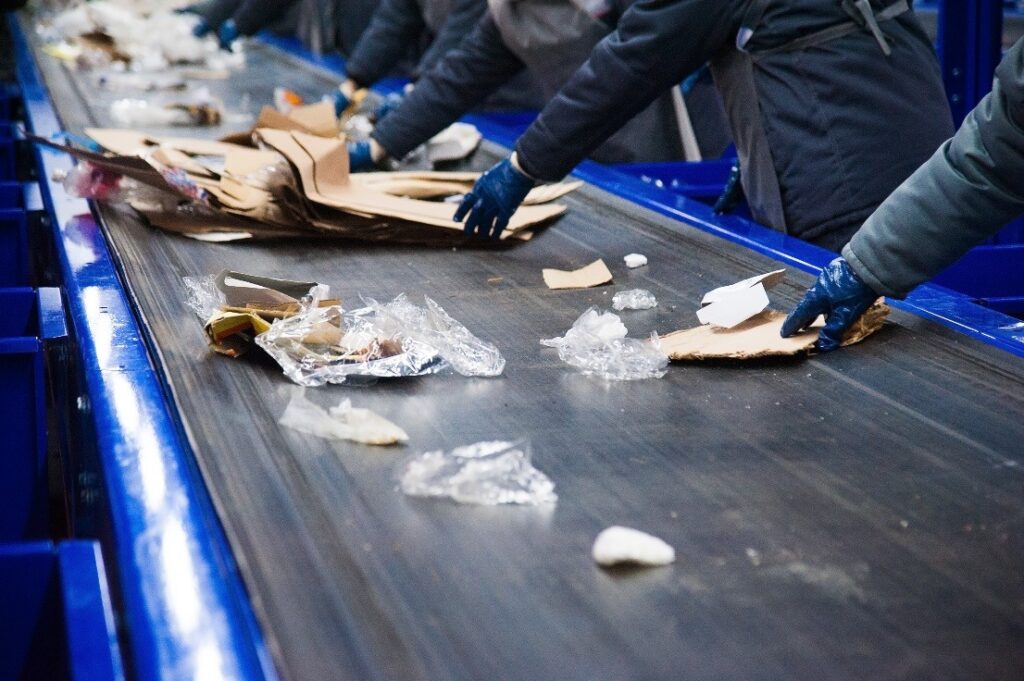CALL NOW FOR A FREE QUOTE 866.760.8194
How Can Your Business Cut Down on Wishful Recycling?
Everyone knows that recycling is an easy way to help keep the planet clean. When in doubt, many people will just drop an item in the recycling bin rather than the trash can. However, even those who have the best of intentions about recycling can actually be contributing to more garbage piling up in landfills.
People like this have been termed “wishful recyclers,” who unfortunately do more harm than good with their recycling habits. Wishful recycling is when an item is tossed in the recycling bin in hopes that it is recyclable. However, these items could “contaminate” other recycling items and cause them to end up in the landfill instead of being recycled. Contaminated recyclables are any items outside the specifically targeted items for a recycling collection (such as cardboard ending up in a plastics collection).
How Contamination Puts Recyclable Materials in Landfills
Contaminated recyclables can cause many issues when they enter the recycling stream, including slowing down manual sorting processes, potentially breaking recycling machinery, and even degrading the quality and market price of recyclable materials. Because commercial waste recycling needs to be profitable, contaminated items being mixed in with recyclable items is a problem.

Sadly, it is easier and less expensive to dump the whole lot than take the time to sort contaminated recyclables. Partly due to wishful recyclers who contaminate the commercial recycling stream, recycling costs in the United States are increasing and recycling rates are decreasing.
There is a catch-22 with this issue. Contamination rates increase in areas with single-stream recycling, where sorting is not required because all recyclables are placed in the same bin. However, recycling participation is higher in these areas because the process is much easier for participants. While simple for those who want to recycle, this convenience is actually causing more recyclable goods to end up being contaminated and dumped in the landfill.
So What Can and Can’t Be Recycled?
It can be challenging to stay on top of what can and cannot be recycled. The list of items that can be recycled is constantly changing due to market fluctuations and technological advancements. When it comes to recycling of industrial waste or general office recycling, local facilities may not be available. In general, posting signs for customers and training employees in these basics will help prevent the contamination of your business recycling.
Do not recycle:

- Take-out containers and pizza boxes, or any waxed or greasy paper products. These may be composted where that option is made available by the business.
- Organic materials and food scraps. Again, these can be composted where that option is available.
- Styrofoam of any kind, including cups or popcorn packing peanuts.
- Single-use cups, lids, and straws.
- Broken or whole glass from dishes, baking pans, or mirrors.
- Plastic bags, except in special store collection bins.
Do recycle:
- Plastic bottles including those from cleaning solutions, detergent bottles, or milk and juice cartons–minus the caps.
- Aluminum cans or containers which contain no other metals.
- Metal cans, copper, nickel, lead, and scrap iron.
- Office paper, newspaper, and cardboard which are clean and do not have a specialized coating.
- Glass jars and bottles–minus the lids.
Preventing Wishful Recycling in Your Business or Facility
In some ways, it is easier to manage the recycling of industrial waste than the recycling bins in an office or retail space. If your business or facility is struggling with managing recyclables or has been told your recyclables are considered contaminated, call or contact Global Trash Solutions for a free consultation on improving your waste stream management. GTS has the solutions you need to capture the economic and environmental benefits of recycling for your business.
Recent Post
Is Hiring a Waste Consultant Right for Your Business?
Managing waste and recycling needs poses a distinct hurdle for businesses focused on…
Read More >Understanding Scope 3 Emissions
Scope 3 emissions are an important component of a company’s total greenhouse gas…
Read More >